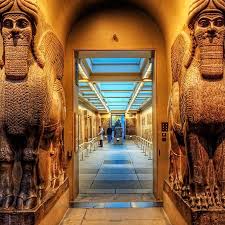The Significance of London Museums in Cultural Heritage

Introduction
London, a city steeped in history and culture, boasts an array of museums that serve as pivotal institutions for preserving and showcasing its rich heritage. With a continuously evolving landscape of art, history, and science on display, these museums attract millions of visitors each year, making them essential to London’s cultural identity and appeal.
Renowned Museums in London
Some of the most notable museums include the British Museum, the Natural History Museum, and the Tate Modern. The British Museum, which houses artifacts from across the globe, including the Rosetta Stone, offers insight into world history, while the Natural History Museum captivates audiences with its extensive collection of specimens and exhibits focusing on the natural world.
The Tate Modern, on the other hand, is a testament to contemporary art, drawing international attention through its innovative exhibitions that feature artists from diverse backgrounds. Each museum not only represents its unique area of focus but also contributes to London’s status as a globally renowned cultural hub.
Current Events and Exhibitions
As of October 2023, many London museums are launching exciting new exhibitions. The British Museum is set to showcase ‘The World of Stonehenge’, exploring the iconic monument’s ancient origins and significance, while the Natural History Museum features a new exhibition dedicated to climate change and its effects on biodiversity, a critical topic given the pressing environmental challenges faced today.
Additionally, the Victoria and Albert Museum has announced its upcoming exhibition ‘Fashioning Masculinity: The Art of Menswear’, which will delve into the evolution of men’s fashion and its cultural implications throughout history.
The Role of Museums in Society
Museums play a crucial role in educating the public and promoting cultural awareness. They are not just places for preservation but also serve as platforms for dialogue, encouraging visitors to engage with both historical and contemporary issues. Throughout the pandemic, museums in London adapted by offering virtual tours and online resources, maintaining their relevance and accessibility to all.
Conclusion
The importance of London museums extends beyond mere tourism; they are places of learning, reflection, and inspiration. As they introduce new exhibits and adapt to the needs of society, these institutions will continue to forge connections between the past and present. Looking ahead, the future of London museums seems bright, with plans for expansion and innovation that promise to enhance visitor experiences and further enrich the city’s vibrant cultural tapestry.
